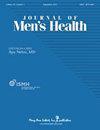脑损伤联系工作者(BIL)干预对服刑和缓刑男性焦虑和抑郁影响的服务评价
IF 0.6
4区 医学
Q4 Medicine
引用次数: 0
摘要
创伤性脑损伤(TBI)在罪犯群体中的患病率高于一般人群。在监狱和缓刑服务中的男性也有许多风险因素,使他们在创伤性脑损伤后出现神经精神并发症的风险更高(例如,低社会经济背景,以前滥用药物的历史)。脑损伤康复服务于2013年由Brainkind(前身为残疾信托基金)开发,为在南威尔士(英国)监狱和缓刑服务部门工作的男性提供脑损伤康复服务。作为更广泛的服务评估的一部分,我们审查了50名在监狱或缓刑的男子在bil干预前后的焦虑水平(广泛性焦虑障碍评估,GAD-7)和抑郁水平(患者健康问卷,PHQ-9)。结果显示,干预开始时(Mean-M = 15.38,标准差- SD = 4.64)和结束时(M = 11.84, SD = 5.15)的GAD-7评分显著下降(t (49) = 2.01, p = 0.00000733)。此外,在干预开始(M = 17.08, SD = 5.55)和结束(M = 12.42, SD = 6.55)期间,通过PHQ-9分数观察到自我报告的抑郁症状显著减少(t (49) = 2.01, p = 0.0000125)。这些结果表明,在BIL干预后,男性的焦虑和抑郁水平总体上有所改善。这项服务评估为制定更严格的研究方案提供了明确的依据,以探索脑损伤干预措施与对这一人群心理健康的影响之间的关系。本文章由计算机程序翻译,如有差异,请以英文原文为准。
A service evaluation on the impact of brain injury linkworker (BIL) interventions on the anxiety and depression of men in prison and on probation
It is well established that the prevalence of Traumatic Brain Injury (TBI) is higher in offender populations than the general population. Men in prison and probation services also have many of the risk factors that place them at higher risk of developing neuropsychiatric complications following a TBI (e.g., low socioeconomic backgrounds, previous history of substance misuse). The BIL service, developed in 2013 by Brainkind (formally The Disabilities Trust) delivers brain injury rehabilitation to men engaged with South Wales (United Kingdom) Prison and Probation Services. As part of a wider service evaluation, we reviewed the levels of anxiety (Generalised Anxiety Disorder assessment, GAD-7) and depression (Patient Health Questionnaire, PHQ-9) of 50 men in prison or on probation pre- and post-BIL intervention. Results showed a significant decrease in the scores reported on the GAD-7 between the start (Mean—M = 15.38, Standard Deviation—SD = 4.64) and end (M = 11.84, SD = 5.15) of the intervention (t (49) = 2.01, p = 0.00000733). Additionally, there was a significant decrease in self-reported depression symptoms as observed by the scores on the PHQ-9 between the start (M = 17.08, SD = 5.55) and end (M = 12.42, SD = 6.55) of the intervention (t (49) = 2.01, p = 0.0000125). These results indicate that overall there was an improvement in the men’s levels of anxiety and depression following the BIL intervention. This service evaluation provides a clear rationale for the development of a more rigorous research protocol to explore the relationship between brain injury interventions and the impact on mental health in this population.
求助全文
通过发布文献求助,成功后即可免费获取论文全文。
去求助
来源期刊

Journal of Men's Health
Medicine-Urology
CiteScore
0.70
自引率
28.60%
发文量
153
审稿时长
10 weeks
期刊介绍:
JOMH is an international, peer-reviewed, open access journal. JOMH publishes cutting-edge advances in a wide range of diseases and conditions, including diagnostic procedures, therapeutic management strategies, and innovative clinical research in gender-based biology. It also addresses sexual disparities in health, life expectancy, lifestyle and behaviors and so on. Scientists are encouraged to publish their experimental, theoretical, and descriptive studies and observations in as much detail as possible.
 求助内容:
求助内容: 应助结果提醒方式:
应助结果提醒方式:


